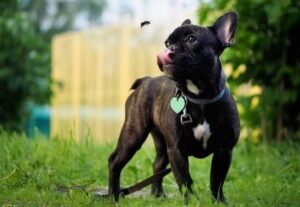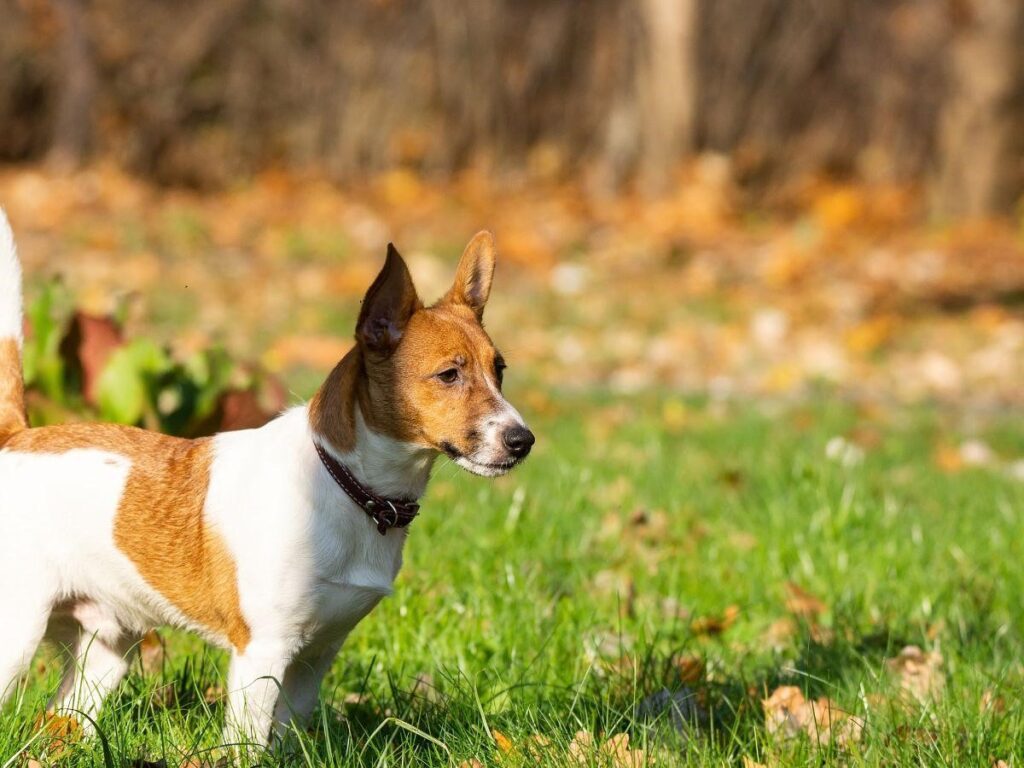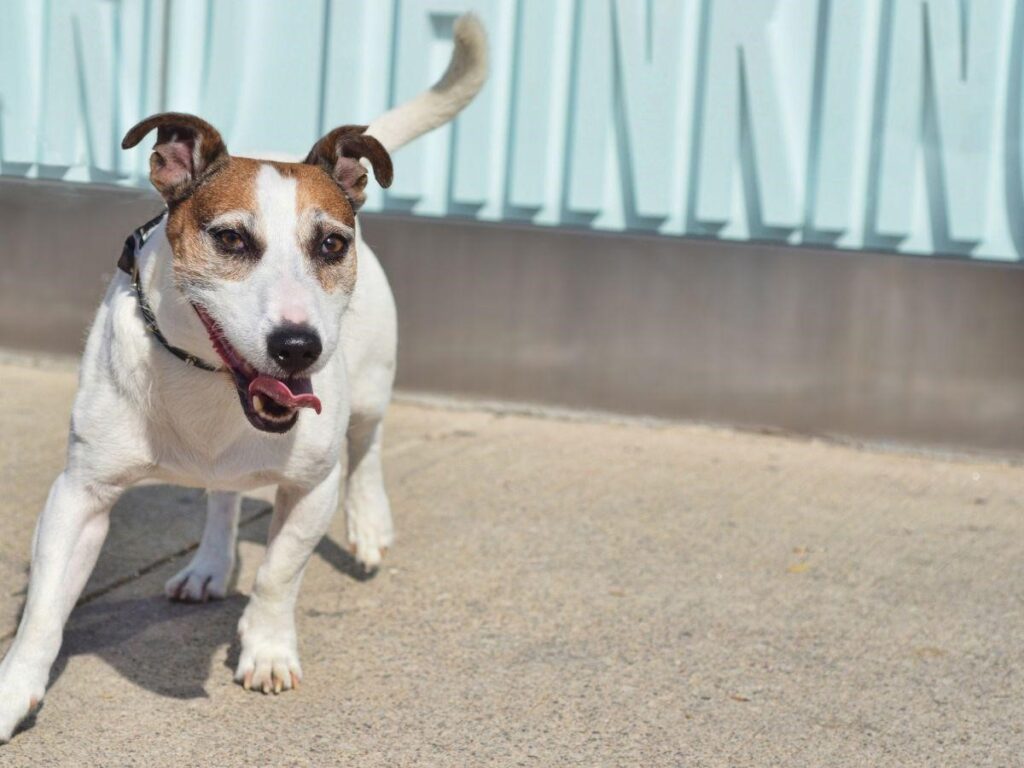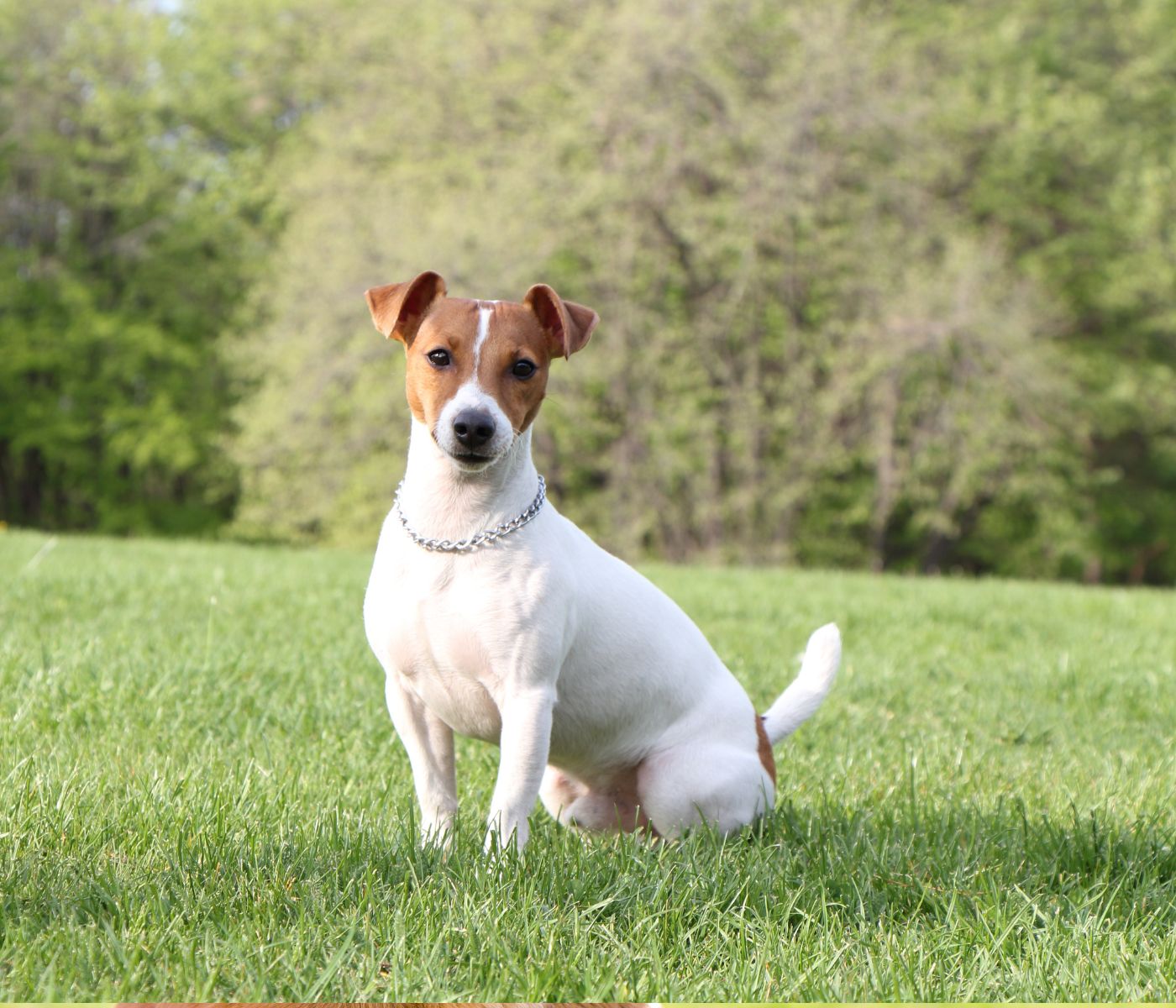Introduction:
We all know that dogs are curious creatures. They’ll sniff around and put just about anything in their mouth. But can dogs really eat bugs? And if so, is it actually good for them?
In this blog post, we’ll be taking a closer look at whether or not it’s okay for dogs to eat bugs.
We’ll explore what kind of bugs they can eat, the benefits and risks associated with eating bugs, and some helpful tips on how to be careful if your dog does decide to snack on a few insects.
Can Dogs Eat Bugs?

The simple answer is yes, dogs can eat bugs. However, there are some caveats to this that will be discussed in more detail later on. For the most part, as long as the bug is not poisonous and has not been treated with pesticides, it should not pose a threat to your dog’s health.
There are a few reasons why you might want to think twice before letting your dog snack on insects, however.
- First of all, many bugs are carriers of disease. While they may not make your dog sick directly, they can transmit diseases to them indirectly.
- Secondly, some insects contain toxins that can be harmful to your dog if ingested in large quantities.
- Finally, even if the insect is harmless to your dog, eating too many of them can lead to gastrointestinal upset or blockages.
As such, it is important to be selective about what kind of insects you allow your dog to eat, and in what quantities.
In general, it is best to err on the side of caution and only give your dog bugs that you know are safe for them to consume.
What kind of Bugs can Dogs Eat?

As a general rule, most bugs are safe for dogs to eat. This includes common household insects like ants, beetles, and flies.
However, there are some exceptions that your dog should avoid, which we will discuss in more detail later on.
There are many different types of bugs that your dog can safely eat, but not all of them will be nutritious or even appetizing to your pet. Some of the most popular bugs for dogs include:
Crickets: Crickets are a good source of protein and essential nutrients for dogs. They can be found in pet stores or online retailers that sell pet food.
Mealworms: Mealworms are another type of insect that is high in protein and essential nutrients. Like crickets, they can also be found in pet stores or online retailers that sell pet food.
Grasshoppers: Grasshoppers are a good source of protein and essential nutrients for dogs. They can be found in fields or gardens where they are known to reside.
It is important to note that not all bugs are created equal when it comes to nutrition. For example, while ants may be safe for your dog to eat, they do not offer much in terms of nutritional value.
On the other hand, mealworms and crickets are both high in protein and essential nutrients, making them a better choice if you’re looking to give your dog a healthy snack.
What are the Benefits of Bugs for Dogs?

Bugs are a great source of protein and essential nutrients for dogs. They’re also low in fat and calories, making them an ideal treat for overweight or obese dogs.
Bugs can help to clean your dog’s teeth and gums, and can even act as a natural wormer. Some people believe that feeding bugs to dogs helps to boost their immune system.
There are many different types of bugs that can be fed to dogs, each with their own set of benefits. For example, crickets are high in iron and B vitamins, while earthworms are a good source of copper and selenium.
Cockroaches are also a good source of protein, calcium, and zinc.
When feeding bugs to your dog, it’s important to choose ones that are safe for them to eat. Avoid giving them any bugs that could potentially make them sick, such as spiders or bees/wasps.
If you’re not sure whether a particular bug is safe for your dog, check with your veterinarian first.
What are the Risks Associated with Eating Bugs for your Dog?

There are a few risks to consider when allowing your dog to eat bugs.
- The biggest risk is potential choking. Smaller dogs are especially vulnerable to choking on small bugs.
It’s important to supervise your dog while they’re eating bugs and remove any that are small enough to pose a choking hazard.
- Another risk to consider is the potential for gastrointestinal blockages. If your dog ingests a large number of bugs, there’s a chance that they could block their digestive tract.
This is more likely to occur with larger bugs, such as earthworms or cockroaches. If you’re concerned that your dog has ingested a large number of bugs, contact your veterinarian immediately.
- Finally, some insects can carry diseases that can be transmitted to dogs. While most insects pose little threat to dogs, there are some (such as fleas and ticks) that can transmit serious diseases.
It’s important to only allow your dog to eat insects that you know are safe and free from disease.
What Bugs can Make a Dog Sick?
There are certain types of insects that can be harmful or even poisonous to dogs if ingested. Some of the more common ones include:
- Spider and bees/wasps: These can both cause severe reactions in dogs, including swelling, hives, and difficulty breathing. If your dog has been stung or bitten by one of these insects, it is important to seek veterinary care immediately.
- Cockroaches and fleas: Both of these insects can carry diseases that can be passed on to dogs if they are ingested. In addition, cockroaches may also contain chemicals that can be toxic to dogs.
- Ladybugs: While ladybugs are not typically harmful to dogs, some species can secrete a foul-smelling liquid when disturbed that can irritate a dog’s skin and eyes.
- Earthworms, snails, and slugs: These gastropods can carry parasites that can infect dogs if they are ingested. In addition, earthworms may also contain soil bacteria that can make a dog sick.
- Stink bugs: As their name implies, stink bugs release a foul-smelling liquid when disturbed which can irritate a dog’s nose and eyes. In addition, some stink bug species are known to bite humans, so there is a potential for them to bite your dog as well which could cause irritation or even an allergic reaction.”
How to be Careful with your Dog Eating bugs?
As mentioned before, not all bugs are safe for dogs to eat. Some can cause serious illness or even death. It’s important to be careful when allowing your dog to consume any type of bug.
There are a few things you can do to help make sure your dog stays safe:
- Be aware of what kind of bugs are in your area and which ones are poisonous. If you’re not sure, err on the side of caution and don’t let your dog eat them.
- Inspect any bugs your dog wants to eat before letting them consume them. Remove anything that looks like it might be harmful, such as wings, stingers, or poisonous parts.
- If you’re unsure whether a particular bug is safe for your dog to eat, consult with a veterinarian beforehand. They will be able to give you guidance based on your individual pet’s health and history.
- Feed your dog a nutritious diet so they’re less likely to want to eat bugs in the first place. A healthy diet will provide all the nutrients they need and reduce their desire for non-food items like insects.
FAQs:
Q: Is it OK if my dog eats a cockroach?
A: While cockroaches are not poisonous, they can carry diseases that could make your dog sick. If you think your dog has eaten a cockroach, watch for signs of illness and contact your veterinarian if they occur.
Q: Is it OK for dogs to eat crickets?
A: Bugs like crickets are a good source of protein for dogs JJ. However, some cricket species can carry parasites that could make your dog sick. To be safe, only feed your dog cooked crickets or those purchased from a reputable pet store.
Q: Is it OK for dogs to eat flies?
A: Flies can carry bacteria and diseases that could make your dog sick. If you see your dog eating a fly, check them for signs of illness and contact your veterinarian if they occur.
Q: Can dogs eat spiders?
A: Most spiders are not poisonous to dogs, but there are some exceptions. The brown recluse spider and the black widow spider both contain venom that could be harmful to your dog if they are bitten. If you think your dog has been bitten by a poisonous spider, seek medical attention immediately.
Q: Can dogs eat ladybugs?
A: Ladybugs are not poisonous to dogs, but they can carry diseases that could make them sick. If you see your dog eating a ladybug, watch for signs of illness and contact your veterinarian if they occur.
Conclusion:
Dogs can safely eat most bugs, but there are some exceptions. Certain insects, like spiders and bees/wasps, can be dangerous to dogs if they are bitten or stung. Cockroaches and fleas may also transmit diseases to dogs.
Ladybugs, earthworms, snails, and slugs are generally safe for dogs to eat, but they may carry parasites that could make your dog sick. Stink bugs should be avoided, as they can cause gastrointestinal issues in dogs.
When feeding bugs to your dog, it is important to start with small quantities and observe your dog for any adverse reactions. If you have any concerns about whether a particular bug is safe for your dog to eat, please consult your veterinarian.
